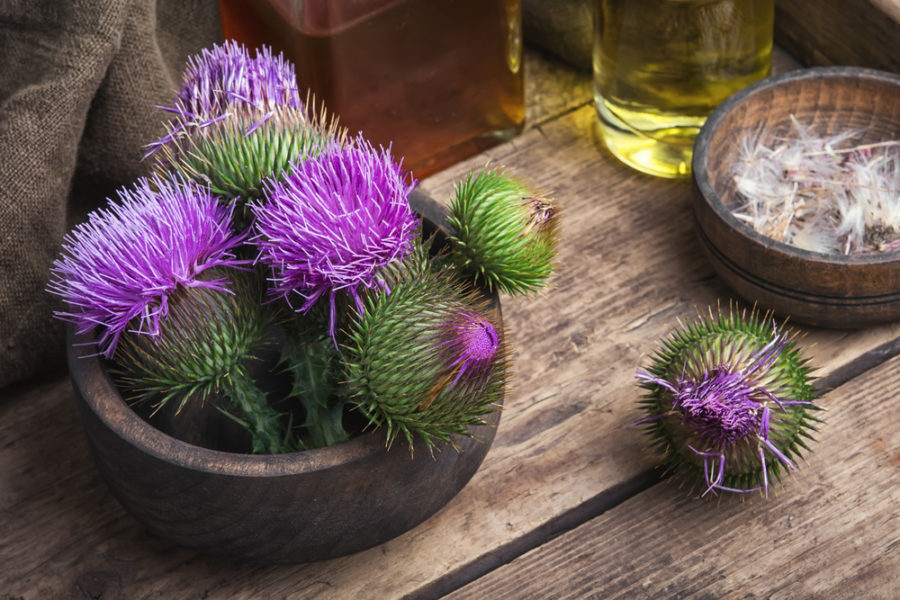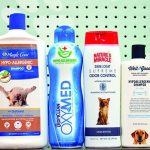The glutathione antioxidant is a tiny but powerful nutrient that is vital to your dogs cell health, liver function and immunity.
Mention antioxidants, and most people think of vitamin C or beta carotene. But there are other, less commonly known antioxidants that are even more important to overall health and well being. One of these is glutathione. It’s a tiny but powerful and abundant protein compound made up of three amino acids. This antioxidant exists in every single cell of your dog’s body, where it protects the minuscule but important energy machines called mitochondria.
Though small, glutathione is the uncontested king of antioxidants. Without it, all your dog’s cells would disintegrate and die from unrestrained oxidation. To understand what oxidation is, think about when a freshly cut apple turns brown, a bicycle fender becomes rusty, or a copper penny turns green. Unchecked oxidation is a destructive process that results in breakdown, illness and cellular death.
Other antioxidants depend on it
More well-known antioxidants, such as vitamins C and E, have short lifespans, but glutathione has the ability to bring these spent antioxidants back from the dead; it even can recharge itself. In other words, all other antioxidants depend on this antioxidant to function properly. No wonder, then, that doctors respectfully call it the “master antioxidant”.
In short, few things in your dog’s body are more important than glutathione. It’s a powerful healing and cleansing agent. Without it, not only would cells die, but the immune system wouldn’t work and the liver would fail from toxic overload.
Giving him glutathione
The level of this antioxidant found in your dog’s body will affect his health and longevity.
But here’s the rub. Since this antioxidant is made up of three amino acids, the oral route of administration simply does not work because the glutathione is digested. For example, asparagus contains more available glutathione than any other food, but the GI tract digests most of it.
The best way to administer this antioxidant is intravenously or intramuscularly. Since that’s not practical (except in cases of Xylitol poisoning when dogs are often hospitalized), I typically use a topical gel preparation placed on a hairless area to be absorbed through the skin.
10 ways to optimize his levels
The good news is that there are several glutathione precursors as well as certain foods that will work to boost this antioxidant’s production in your dog’s body.
1. Vitamin C
A little extra vitamin C on a daily basis will recharge the glutathione already present in his body. The powdered buffered form of this vitamin is relatively tasteless and easy to sprinkle on a bit of wet food. The suggested dose is 50mg to 100mg per day.
2. Garlic
Garlic is a sulfur-rich food. A little fresh garlic each day supports this antioxidant’s production.
3. Greens
Kale and broccoli have compounds that support the natural production oft his antioxidant in the body.
4. Selenium
Selenium is an important mineral that helps your dog’s body recycle and produce more of this antioxidant.
5. SAMe
SAMe (S-Adensoylmethionine) is converted into glutathione and readily available at health food stores and through veterinarians. The recommended dose is 20mg/kg/day.
6. N-acetyl-cysteine
Another readily available supplement called N-acetyl-cysteine helps boost this antioxidants’ levels in your dog’s blood and liver. As mentioned in the sidebar, it’s used in human hospital ERs to treat people with liver failure from Tylenol overdose.
7. Whey protein
Whey protein has been shown to increase this antioxidants’ levels. Quality whey protein contains all the key amino acids for glutathione production, along with a unique and highly bioactive compound called glutamylcysteine, which promotes this antioxidant’s production.
8. Vitamin D3
There is evidence that vitamin D3 increases intracellular glutathione.
9. Milk thistle
Milk thistle is an excellent source of an antioxidant called silymarin, which may help prevent glutathione depletion in the liver.
10. Exercise
Exercise boosts glutathione levels.
More health benefits
As you can see, healthy levels of this antioxidant are tremendously important for maintaining health. In people, glutathione deficiency has been linked to cancer, arthritis, autoimmune disease and Alzheimer’s. I have successfully used glutathione gel in one dog with senior dementia. And intramuscular this antioxidant literally saved the life of a dog dying from Xylitol ingestion; it turned him around in a matter of hours.
You may not have heard much about glutathione before now, but it’s a good idea to get to know this nearly miraculous antioxidant. It can help give your dog all the support he needs for a long and healthy life. I use
OxiCell SE for Pets
Topical Multi-Vitamin And Antioxidant Formula for my 3 16 year old pups












